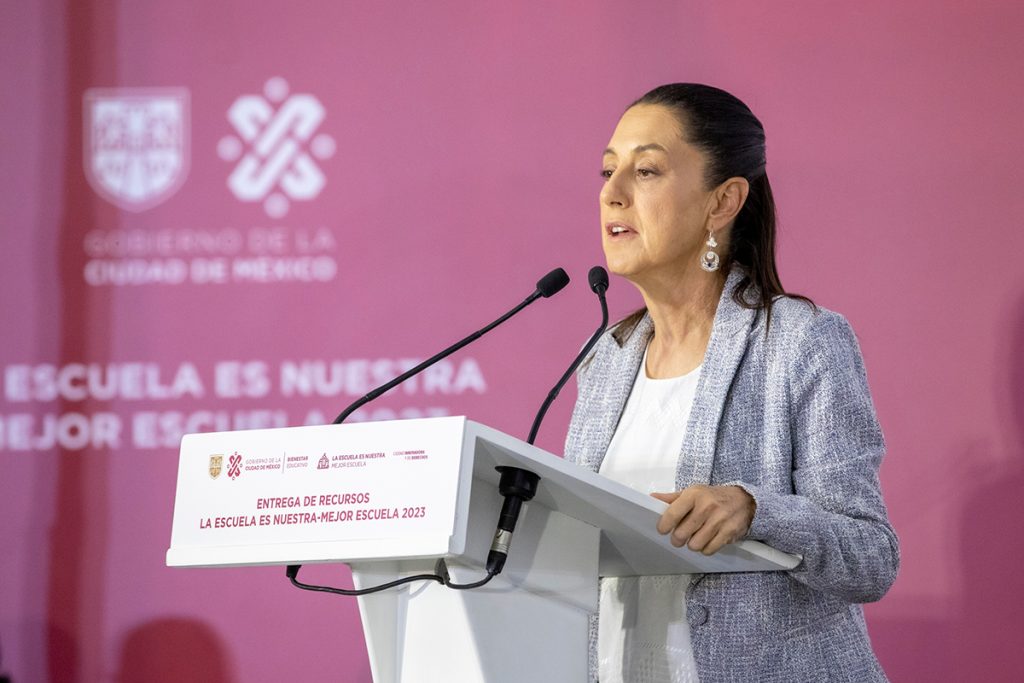With Claudia Sheinbaum poised to take the reins as Mexico’s next president, she steps into an arena rife with challenges: the enduring specter of cartel violence, economic strains, and the looming legacy of her predecessor, Andrés Manuel López Obrador. Amidst this labyrinth, analysts spotlight three critical hurdles that will steer her administration: fiscal constraints, the call for dialogue, and the ripple effects of the impending U.S. presidential election.
Transitioning from López Obrador’s tenure to Sheinbaum’s poses a tangled web. While López Obrador pledges to maintain distance, his shadow remains cast as he retains key figures, signaling continuity in some policies. Nonetheless, Sheinbaum champions unity over discord, signaling a departure from López Obrador’s populist approach.
An economic mountain confronting Sheinbaum is the pressing need for fiscal restructuring. With a hefty deficit nearing 6%, sustaining her predecessor’s beloved social programs presents a conundrum amidst dwindling oil revenues. Mexico’s state-owned oil titan, Pemex, stands as a symbol of nationalism but grapples with financial woes, spotlighting the urgency for economic diversification despite Sheinbaum’s backing of the oil sector.
The outcome of the U.S. presidential election casts a long shadow over Mexico’s political landscape. Sheinbaum’s grasp of U.S. politics and fluency in English hint at potential for enhanced diplomatic ties, yet uncertainties loom, particularly regarding immigration and security policies. Whether President Joe Biden secures re-election or former President Donald Trump returns to power will significantly sway Mexico’s stance on issues spanning trade to immigration.
Confronting Mexico’s entrenched violence presents a Herculean task for Sheinbaum. While experts advocate for bolstering civilian institutions, López Obrador’s lean towards militarization sparks worries about human rights and accountability. Sheinbaum’s stance on the military’s role remains hazy, underscoring the intricacies of steering security policies in a nation besieged by violence.
On the political front, Sheinbaum’s Morena party’s dominance in congress presents both promise and peril. Armed with the ability to amend the constitution, Sheinbaum could enact substantial reforms, yet concerns linger about checks on executive authority and judicial autonomy. Upholding the separation of powers will be pivotal in crafting a robust government that upholds democratic ideals.
Despite the hurdles ahead, Sheinbaum’s resounding victory in the recent election grants her significant leeway. Unfettered by the need for coalition-building, she holds the agency to pursue her agenda autonomously. However, mastering the intricacies of Mexican politics, including managing dissent and ensuring transparency, will demand adept leadership.
As Sheinbaum embarks on her presidency, the nation’s gaze rests upon her. Her capacity to tackle Mexico’s pressing challenges—be they fiscal, diplomatic, or political—will shape her legacy and chart the nation’s course for years to come. In a land grappling with profound rifts and entrenched issues, her leadership offers both promise and ambiguity as Mexico teeters on the brink of a new chapter.


